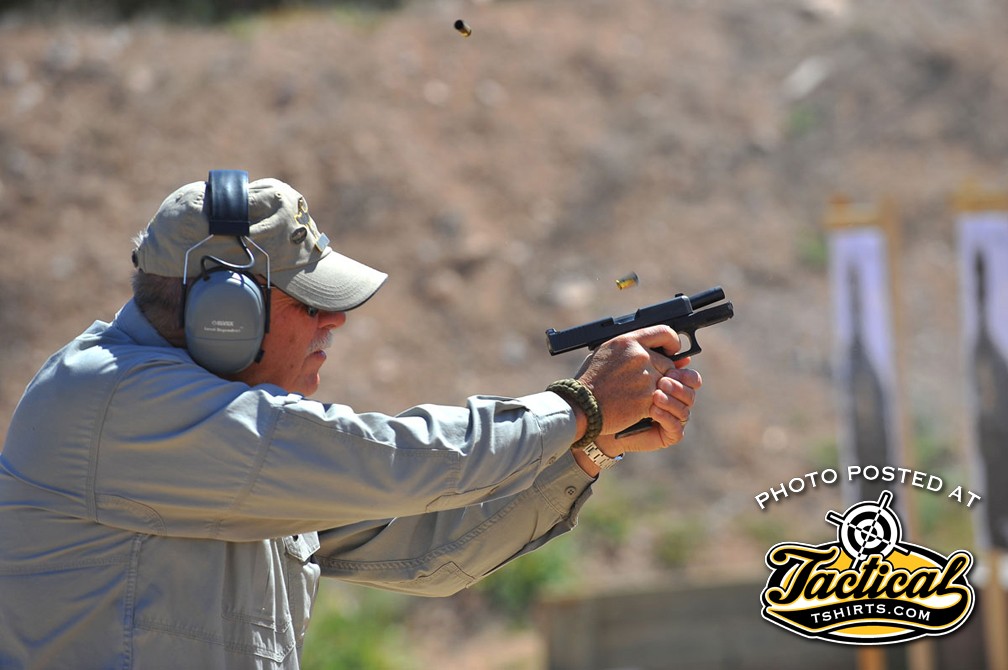
The basic safety rules for shooting are:
Treat every gun as if it were loaded.
Always point the muzzle in a safe direction.
Be sure of your target and what is beyond.
Keep your finger outside the trigger guard until ready to shoot.
Regardless of where you shoot, these rules remain constant. But if you’re shooting in the desert at a competition, training school or just shooting rocks, you also have to consider the constant threat of dehydration and the nasty sunburns caused by not having enough protection from the sun.
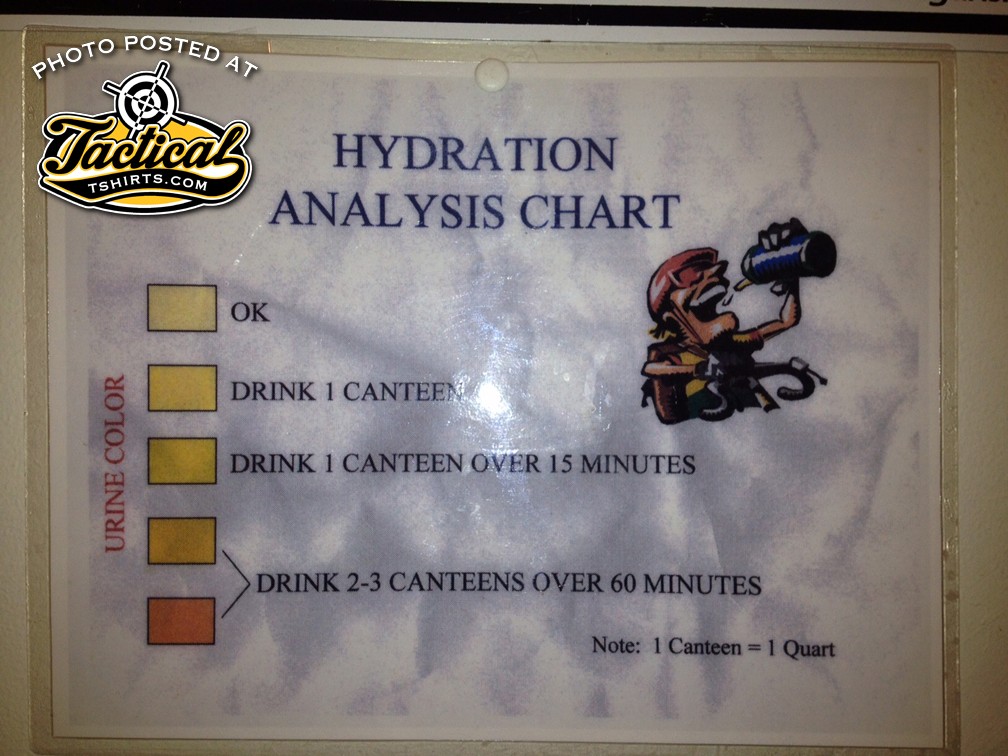
Searing summer temperatures, dry air and the lack of shade make water loss an extreme issue. Dehydration, in serious cases, can lead to death. The folks at Gunsite Academy shooting school are so serious about it that they even have pee charts in their bathrooms so you can compare the color of your urine to your level of dehydration.
In order to prevent the loss of too much fluid, bring more water than you usually drink. The higher the temperatures, the more fluids your body loses to sweat and, if the environment is arid, your sweat can evaporate so quickly you might not notice you’re sweating.
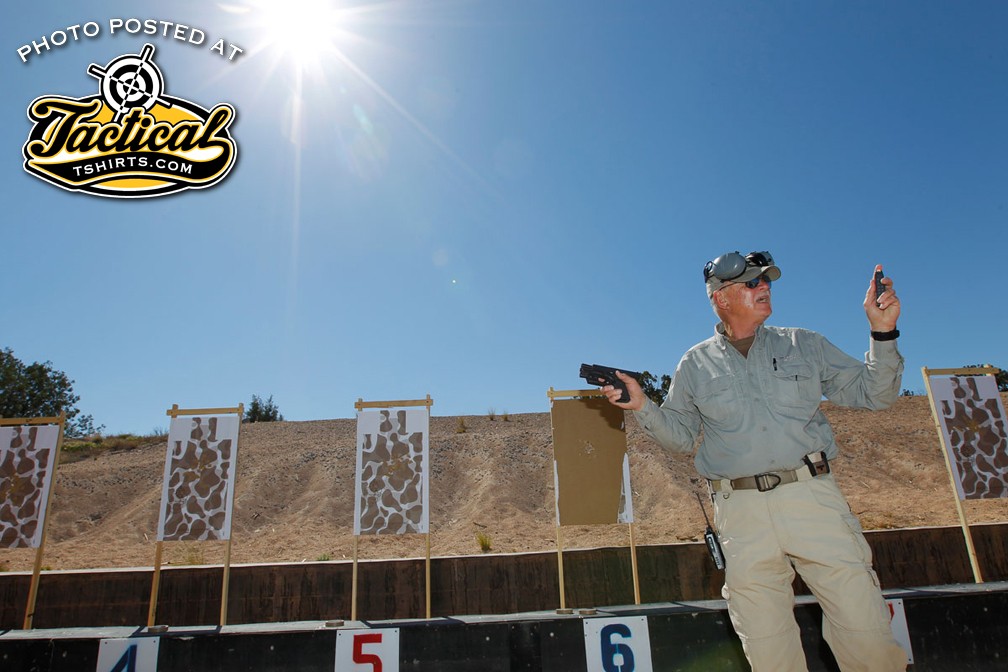
A helpful tip for efficiently managing your water loss and water intake is to frequently take sips of water instead of draining half of the bottle at once. Consuming a light snack when taking in a bunch of water is important because electrolytes in your body are expelled with sweat and large water consumption. Without enough electrolytes, your body becomes dehydrated faster and your muscles and brain are negatively affected and your shooting will suck, not to mention you might not be as safe if your mind is muddled. One sign of dehydration is being thirsty, so a good rule is to not wait until you’re thirsty to drink. By the time you realize you’re thirsty, you may have already lost a significant amount of water.
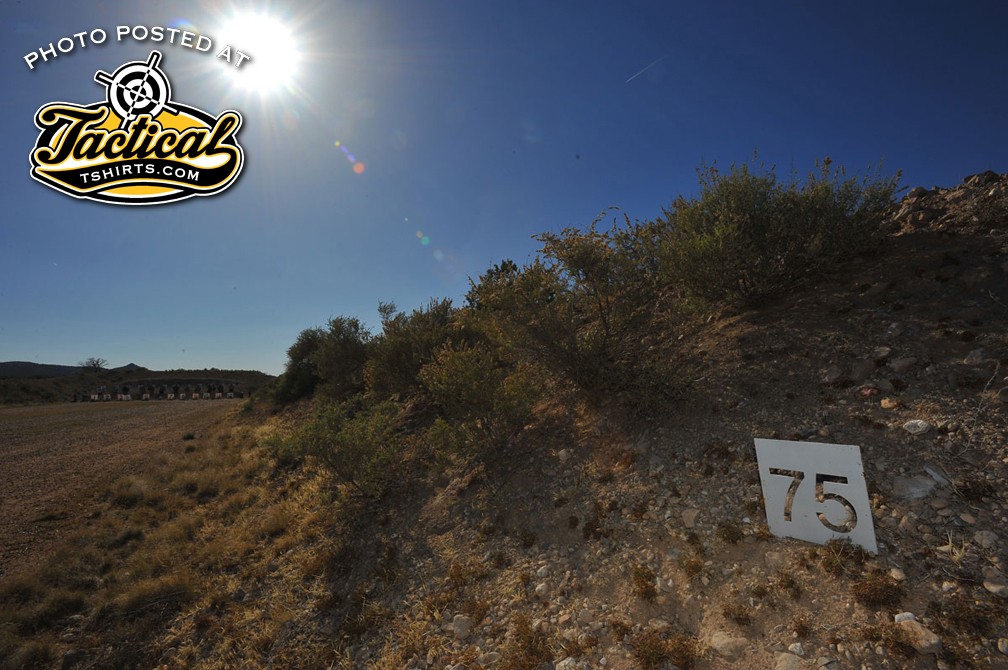
In the desert, the summer temperature skyrockets during the afternoon. Because of the high temperatures, wearing less clothing seems desirable, however, that can be far more dangerous than helpful. UV rays are known to cause cancer, and the American Southwestern has higher sunlight intensity due to its proximity to the equator. With the lack of clouds in the sky and pretty much no shade, skin cancer and sunburns are at a higher risk. Sunscreen is a must out here and the general rule of thumb is that if it takes you less than 30 seconds to rub it in, you do not have enough on. It’s better to have on too much than too little, and reapply often—one application does not last all day.
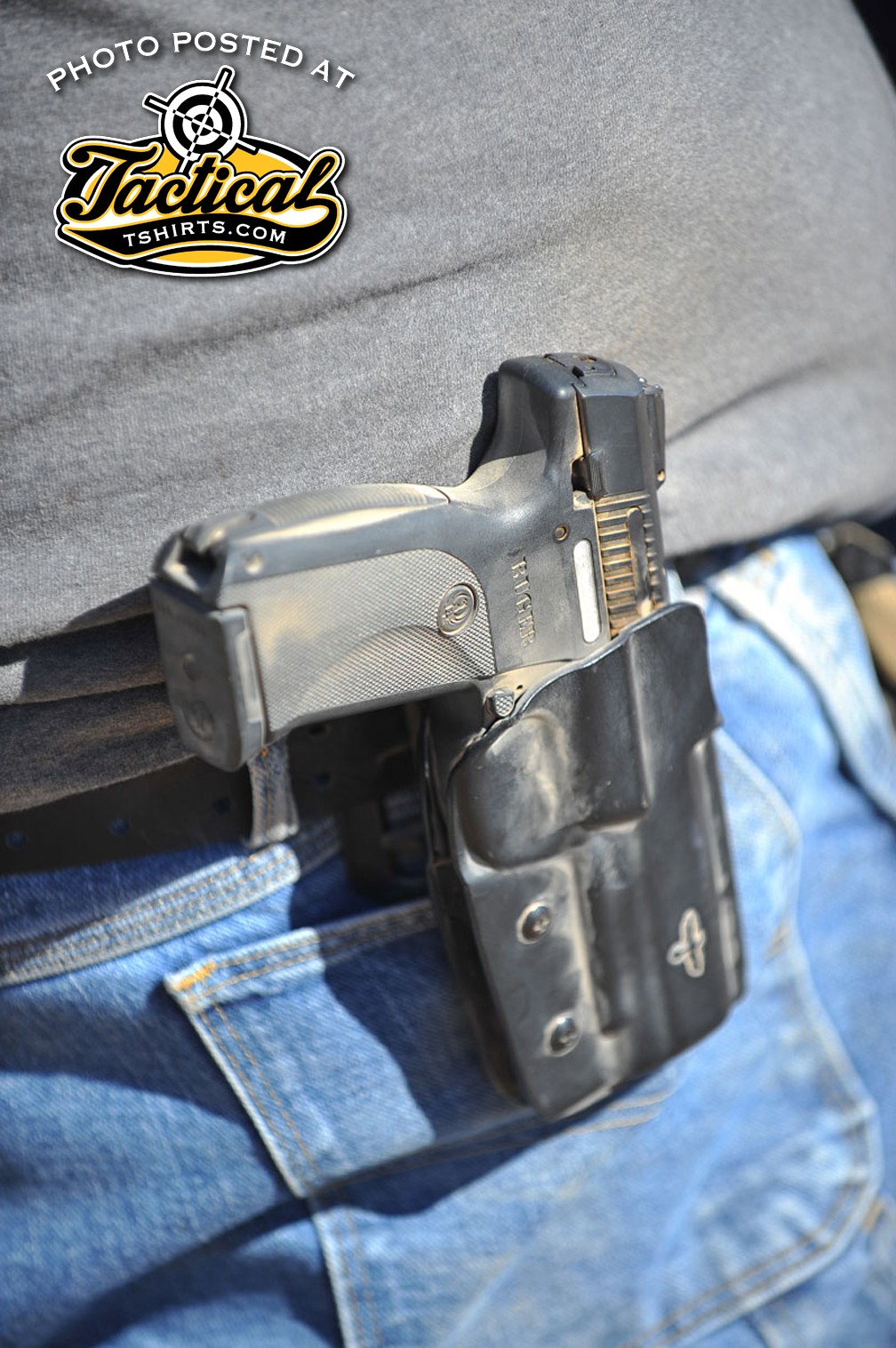
Ensuring safety is the number one priority when shooting. Refusing to follow the rules can cause serious damage to yourself, and to the ones around you. Shooting in the desert can be a fun filled experience for you and everyone involved, however, ending up in the emergency room because of dehydration or getting “lobstered” by the sun shouldn’t be high up on your bucket list.

By Sierra Jackson and Scott Mayer
www.tacticaltshirts.com
www.john1911.com
“Shooting Guns & Having Fun”
- CMMG Banshee & DefCan - April 13, 2018
- Cartridges Before There Were Cartridges - May 7, 2017
- Gas Rings Seal Test - April 17, 2017





